Derick joined Indeed in 2022 as a Staff Data Scientist, Recommendation Science. Before joining Indeed, he worked as a machine learning engineer at a startup in Japan. He majored in Computer Science in college.
—
Machine learning has gained traction in recent years in Japan, where there continues to be a shortage of young workers. It is a core technology in the AI field that is advancing at a rapid pace and is used in all industries.
Indeed, the world’s number one job search engine* uses powerful machine learning and algorithms to provide information that matches job seekers’ needs.
In this article, we talk to a data scientist who is responsible for making improvements to the systems used to display company information that matches job seekers’ requirements. He is a member of the product development team working on machine learning. We asked him about the development environment at Indeed, and growing his career as an engineer.
*Comscore, Total Visits, September 2022
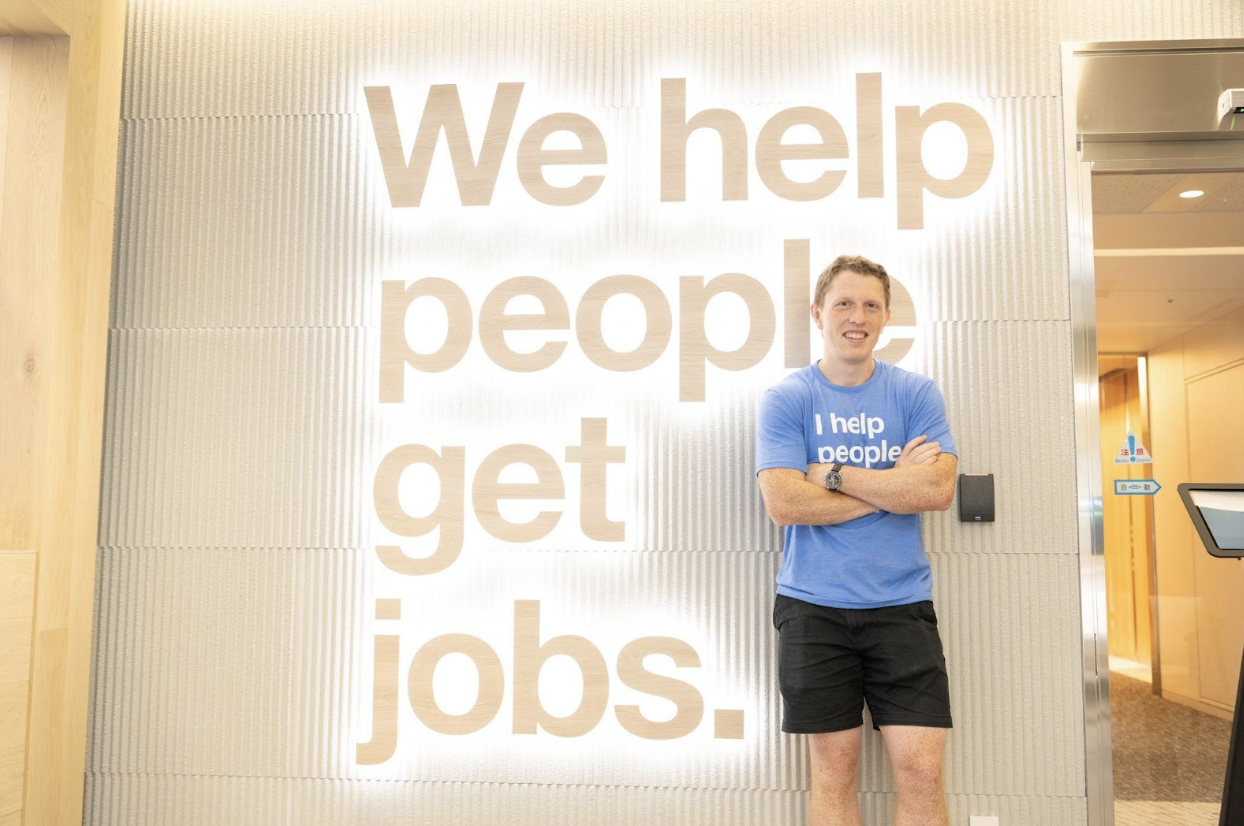
Derick Wayne Anderson
Derick completed his master’s degree at a university in the US in 2019 before joining a Japanese startup company, in which he worked as a machine learning engineer tasked with developing recommendation systems and information retrieval systems. Derick joined Indeed Japan in 2022, where he is responsible for using the latest technologies, such as deep learning, to improve systems used to display company information matching job seeker requirements.
Working on teams that use the latest deep learning technologies
Why did you decide to work in Japan?
In college, I wanted to try living abroad, and I used the school’s co-op (extended internship) program to do so in Japan. Since I was a kid doing karate, I have had an interest in Japanese culture, and also taken a few Japanese language classes while working on my Computer Science degree. I was lucky enough to find an internship focused on machine learning in Tokyo that allowed me to satisfy all those interests.
I enjoyed life in Tokyo enough that I wanted to try working in Japan again after graduating from university. When I graduated, I searched first for a job in Japan and got a few different offers. I joined a company that was both a machine learning driven company that could help develop my career and was also a match for my non-technical interests.
What kind of work did you do at the startup?
I worked as a machine learning engineer responsible for developing recommendation systems and other related machine learning systems. A recommendation system like I developed tries to retrieve and display the most relevant or “best” information for each user. The details were quite complicated, but basically, when the user opens the app, they should see the articles most appropriate for them on top.
In order to make that user experience happen, machine learning had to be able to understand and predict users’ behavior, understand the tens of thousands of possibly relevant articles, and how these two worlds interact to determine the best match between user and article.
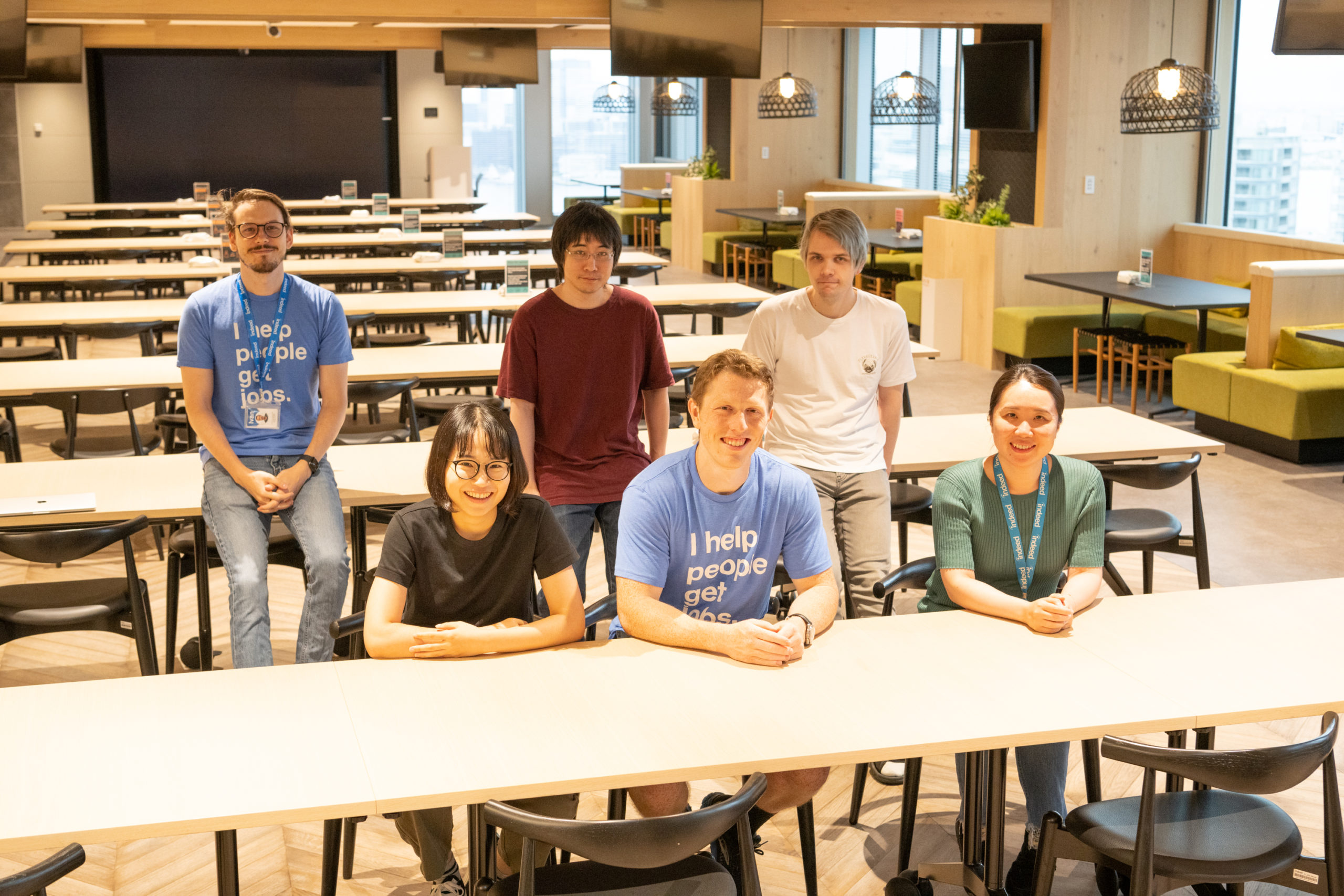
Why did you choose to leave and join us #insideindeed?
I learned a great deal in the three years at my previous company, but felt that taking on more challenges in a new environment would allow me to grow as an engineer. Furthermore, I felt that having experience applying machine learning to a different industry would be beneficial.
What made you choose Indeed Japan over all other options available?
The deciding factor was the team that I knew I’d get to work with at Indeed. It’s well positioned to act on the core mission of the company, delivering the most relevant information to job seekers and totally focused on using machine learning to do so. Indeed as a company has a good problem space and a lot of data to do machine learning on. Of course, I received other attractive offers, but none had such a good combination of team and problem space.
Constructing the ideal algorithm for companies and job seekers
What does your current role involve?
Generally speaking, there are three kinds of teams related to machine learning in Japan. One is responsible for building the systems and infrastructure for machine learning, one is responsible for building a platform usable by other teams who want to do machine learning, and one is responsible for using machine learning to improve products directly. I’m assigned to the third kind of team, but I’m also heavily involved in coordinating the work of the other two teams. My goal is to use the most recent machine learning techniques in the product at scale and create a good experience for machine learning practitioners, which requires multiple teams to cooperate.
The global team working on an array of projects and the evolving global market situation means that a lot of coordination, monitoring, and adjustment is needed. Paying attention to those factors and figuring out how to make ongoing work more efficient is also an important part of my role aside from new feature development.
How are you updating algorithms?
We make small improvements to enhance the machine learning quality on an ongoing basis, for example, adding new information that machine learning uses to make decisions. At the same time, we work on large-scale updates to the core of the machine learning algorithms.
For example, the current algorithms cannot read or understand a resume directly. However, using the latest deep learning techniques could allow them to read a resume directly without having to put the resume through preprocessing and information extraction layers first. Implementing this kind of core improvement with the global team will allow us to deliver more optimal information to job seekers than ever before.
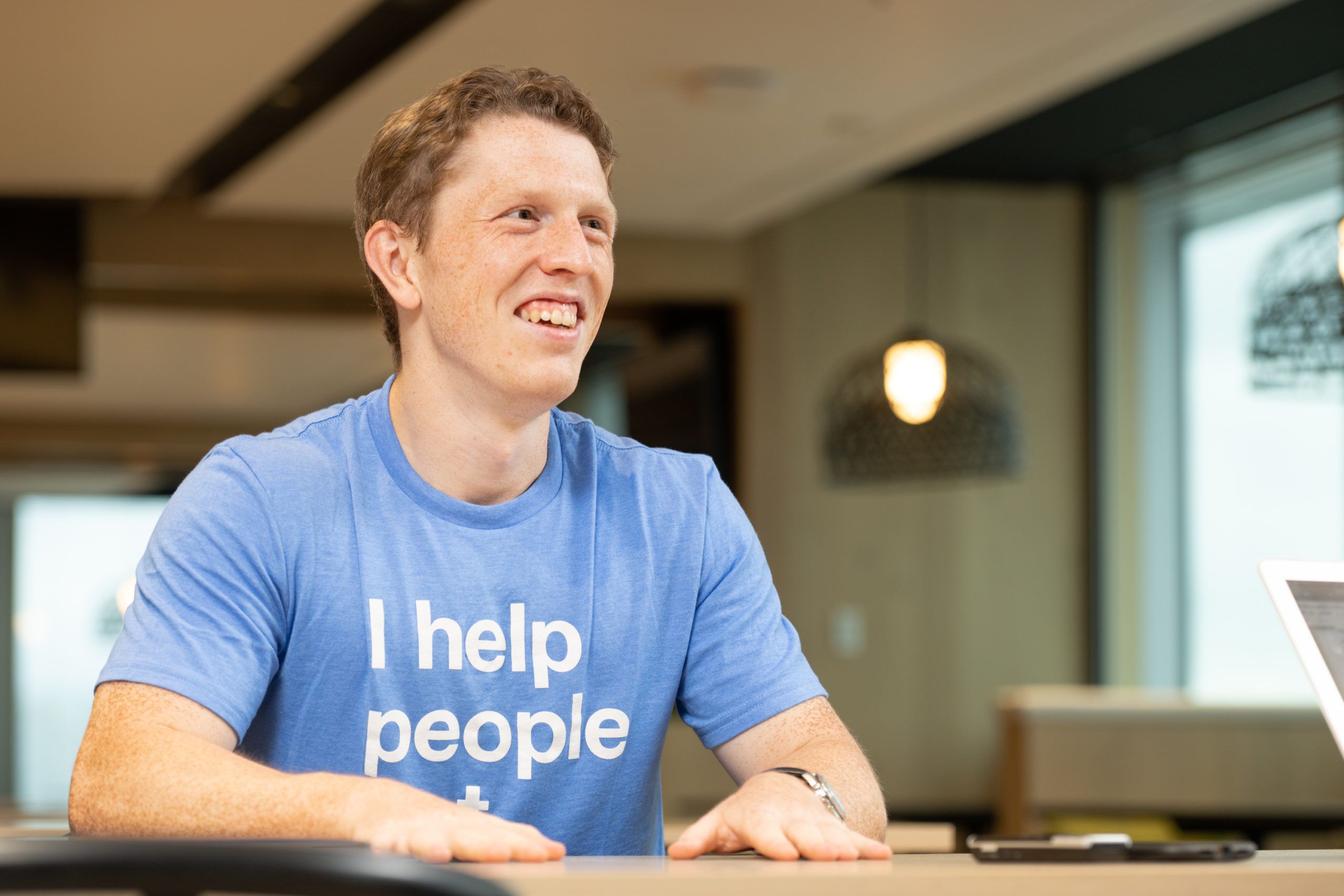
How does your work style differ from your previous role?
The startup company I worked for previously was trying to achieve highly ambitious goals in a short amount of time, which meant we always had to focus on delivery with a tight timeline. I was able to boost my skills as an engineer significantly, but at the same time, there was a great deal of pressure. Conversely, Indeed emphasizes a mid to long-term vision, which means we have more leeway in how we move ahead.
What do you find rewarding in your day-to-day work?
I find it rewarding to make products that help people with an important part of life – finding the right job. Matching the right job seeker to the right job is also important on a societal level. In Japan, for example, the growing shortage of labor will make hiring more important than ever for companies to continue operating.
How do you think your skills have improved since you joined Indeed?
I was just out of college in my previous job, so I often focused on learning from more senior employees. Since joining Indeed, I’ve had more opportunities to lead based on my own knowledge and experience. Helping other employees grow and the team improve while still committing to results has been a good challenge.
Creating new products with a diverse Team
What kind of employees are on your team?
My team has members from a wide variety of countries, including the United States, Italy, Japan, China, Taiwan, and India. Culture and values vary immensely depending on the country in which you were born and grew up, which means we need to intentionally build a working culture specific to Indeed, unlike how Japanese companies can rely on Japanese culture.
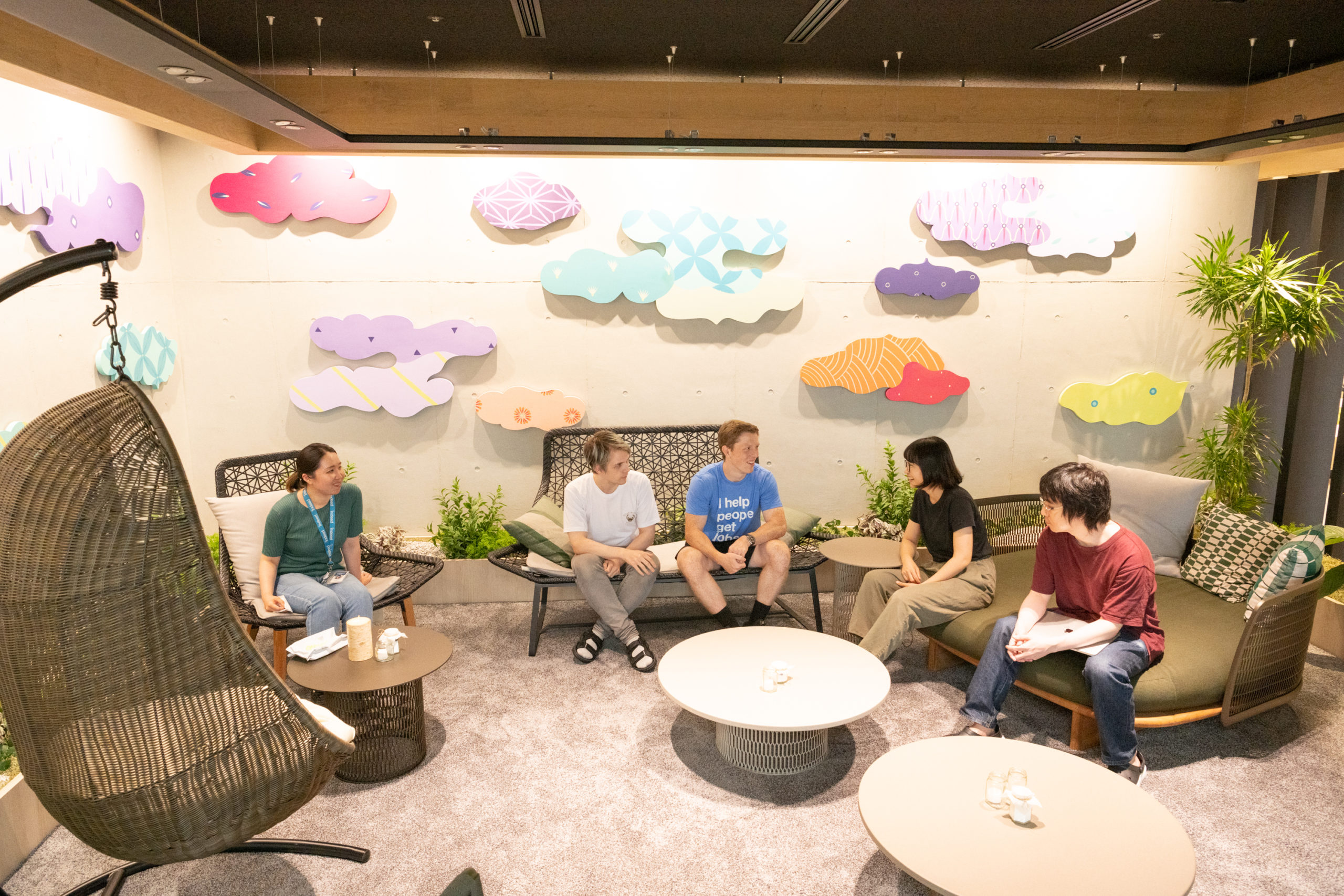
Have you encountered any difficulties at work?
Indeed’s culture allows us to leverage each other’s experience and knowledge to improve our own skills. I think it’s a very nice place to work. We are able to exchange opinions freely, regardless of our age or our tenure with the company, which makes it a welcoming environment.
It’s not just our team; the backgrounds of the people working at Indeed are many and varied, but we communicate well with English as our main language, and there are numerous communities within the company.
How do you communicate on a day-to-day basis?
I primarily work remotely, so I use web conferencing and business chat tools. People are very open, so if I don’t understand something I can just ask and get an answer very quickly. Moreover, since we are a team of engineers, at times we communicate best through code and diagrams rather than in English.
In addition, there are team study sessions where individual members can share their knowledge with the entire team. We regularly integrate our experiences and ideas into the team as a whole and then apply these in our work. Subjects might include papers that people have read or cutting-edge technologies they want to introduce.
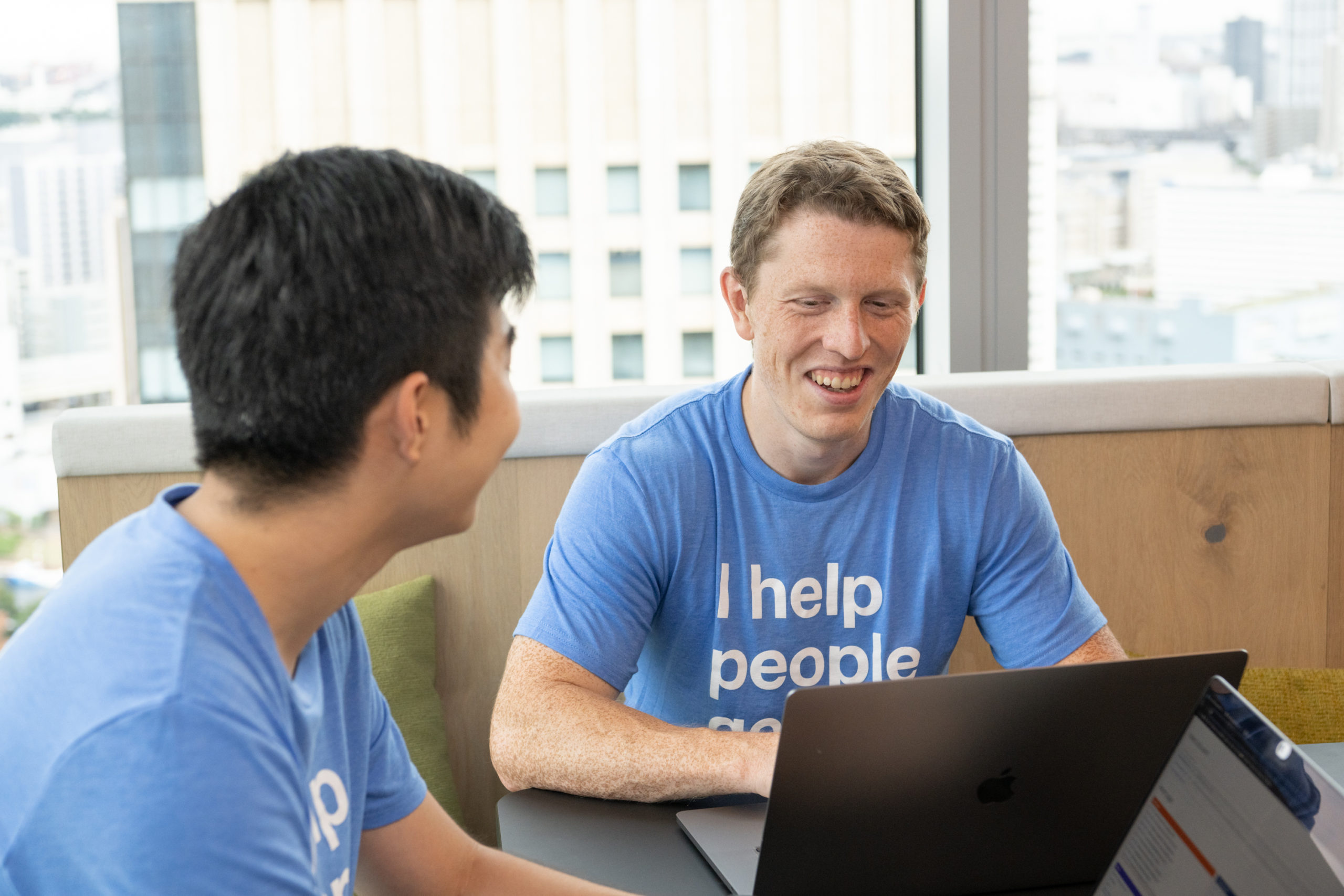
How does the diversity of your team influence the products you’re creating?
Indeed products are available in more than 60 countries around the world, so when we want to create the best products for each one, the experiences and outlooks of the multinational team members are invaluable. When you experience the culture of a country, you can understand what the people there want and what their real needs are.
For example, if some members of the global team are familiar with India, they can create some intuitive ideas on what type of products might be successful in the Indian market. Conversely, if I, who have never been to India, was assigned to this, I would probably need to dedicate a lot of time to research. Of course, we do collect and verify detailed data, but the research and hypothesis formulation that needs to be done beforehand can happen faster. I think that the ability to create highly accurate products while connecting with our multinational members is a major strength of the Matching Science team.
Building a career by creating better user experiences
What do you feel are Indeed’s strengths?
We offer services in more than 60 countries around the world, and the products are large in scale. Our ability to leverage a range of algorithms to thoroughly optimize the product is a major strength. Compared to simple content consumption apps, we have a lot more complex product surfaces to apply machine learning. Nowadays, many companies make use of AI, but there are relatively fewer companies that put it at the heart of their business like Indeed.
Going forward I want to develop highly versatile machine learning and algorithms that can be used throughout Indeed, including systems based on deep learning. The first milestone will be to deliver an impact on the product my immediate team owns before deploying the new systems to many more products at Indeed.
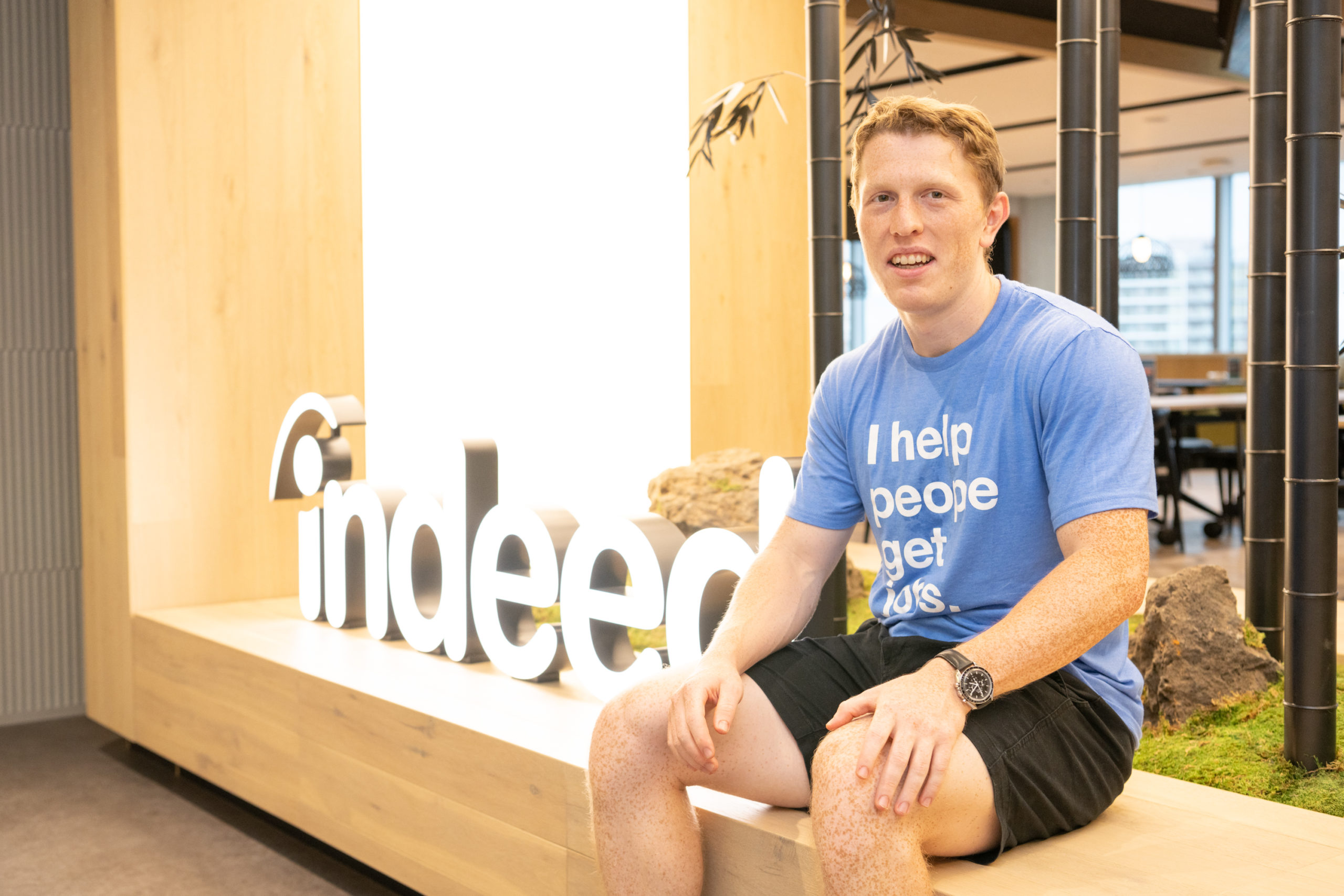
What do you think it takes to succeed as an engineer at Indeed?
It’s important to have a can-do mindset, a drive to improve the user experience, and a flexible engineering mindset. In terms of skills, you need to be knowledgeable in coding and math. That said, people with a variety of backgrounds can succeed if they bring their individual strengths to the table.
Indeed offers both work-life balance and a meaningful problem space. As for our team, by working hard to build and optimize machine learning systems, you can significantly increase your market value as a machine learning engineer and data scientist.



